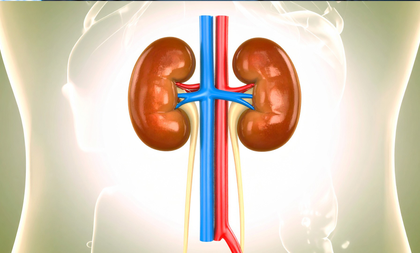Scientists find biological signals to predict course of chronic kidney disease
By IANS | Updated: August 15, 2025 16:45 IST2025-08-15T16:35:28+5:302025-08-15T16:45:07+5:30
New Delhi, Aug 15 A simple blood or urine test may now help better predict how chronic kidney ...

Scientists find biological signals to predict course of chronic kidney disease
New Delhi, Aug 15 A simple blood or urine test may now help better predict how chronic kidney disease is likely to progress, according to a study on Friday, which identified key biological signals of the disease.
The team from The University of Manchester showed that higher levels of Kidney Injury Molecule-1(KIM-1) -- a special marker of kidney damage in the blood and urine -- are associated with higher risks of mortality and kidney failure.
Last month, the team measured 21 markers in blood and urine that reflect key processes driving kidney disease, inflammation, and heart disease.
Unlike the generic tests used in routine kidney clinics, these markers shine a light on the biological changes, underpinning CKD, that truly drive the disease.
“The progression of chronic kidney disease is highly variable between people, so it’s difficult to predict which patients will progress to kidney failure or worse,” said lead author Dr Thomas McDonnell, from the varsity.
“But our work raises the prospect of the development of simple blood or urine tests that could better predict the degree of risk -- invaluable information for doctors and patients.
“We think that these models, which are more closely aligned with the underlying biological changes happening in chronic kidney disease, could allow a more tailored approach to the individual needs of patients,” McDonnell said.
In the study, published in the American Journal of Nephrology, the researchers analysed the blood and urine of adults with non-dialysis chronic kidney disease from 16 nephrology centres across the UK.
They analysed blood and urine KIM-1 in 2581 patients for the KIM-1 study. Separately, they looked at 21 markers of kidney damage (identified by the researchers in a study last month), fibrosis, inflammation, and cardiovascular disease in a second set of 2,884 patients.
Using statistical analysis, the team could assess how or if biological signals associated with kidney failure and mortality, and developed risk prediction models.
“This discovery may help doctors identify high-risk patients, so they enact more aggressive interventions, earlier specialist referral, and earlier treatment therapies,” McDonnell said, adding that “by identifying low-risk patients, they would be able to prevent over-treatment".
Disclaimer: This post has been auto-published from an agency feed without any modifications to the text and has not been reviewed by an editor
Open in app